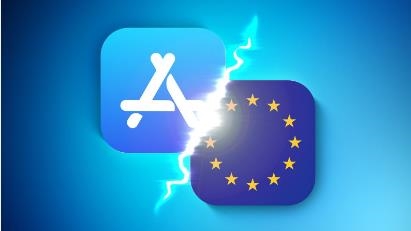Apple is going to change the way apps work in Europe by allowing **third-party app stores with iOS 18**. This is a big change brought about by the Digital Markets Act (DMA). Starting on September 16, 2024, European customers will be able to download apps from locations other than the official App Store on their iPhones and iPads. This will greatly increase the options available to both consumers and developers.
The EU called Apple a “gatekeeper” and set new restrictions to end Apple’s long-standing monopoly on the distribution of iOS apps. For years, Apple’s App Store was the only place to get apps, and it controlled everything from their availability to their prices to the user experience. By adding support for third-party stores and direct app installs through developer websites, iOS 18 promises to make the app landscape more diverse and competitive. It’s like letting a tightly controlled environment loose into a buzzing swarm of options.
But Apple’s evolution is a well planned approach that combines following the rules with taking steps to safeguard itself. Even if this change is pluralistic, core features like Screen Time, parental controls, and Spotlight search are still *very* dependable. That being said, apps that are not part of the Apple ecosystem lose access to Apple’s secure commerce infrastructure, which means that customers will have **limitations on in-app purchases, refunds, and subscription management**. Apple says that decentralized distribution comes with hazards including malware, frauds, and system vulnerabilities. It puts a lot of the responsibility for safety and fraud prevention on users and third-party marketplaces.
The consequences are already spreading through the app sector. Setapp Mobile, AltStore, and BuildStore are new participants in the third-party platform space that are *especially innovative* and meet specific demands, from productivity to creative tools. This diversification makes it easier for indie developers to make apps, which Apple has traditionally kept exclusive. This will lead to a more lively app economy that puts users first.
Apple’s compliance also brings about major changes in how market power and platform accountability work. The DMA’s harsh sanctions, which can be as high as 10% of global sales for violations, show how serious the situation is. Apple’s new App Store cost structure, which now offers tiered pricing and removes anti-steering restrictions, is a unique part of this change. It shows that the company is doing a *highly efficient* job of reconciling legal obligations and business needs.
The new iOS 18 landscape delivers the following to EU users and developers:
– **Access to more than one app store**, breaking the norm of having only one store.
– **The ability to install programs straight from developers’ websites, without going through the usual steps.
– **New options for indie developers to reach users without any problems.
– **Possible savings and new ways to pay, like third-party processors.**
– **More focus on security and privacy**, which means users need to be careful.
– Keeping important Apple features like Screen Time while also limiting commerce.
– **A more competitive market**, which leads to new technology and gives consumers more control.
This change marks a turning point where rules encourage openness instead of stifling new ideas. Apple’s use of these features shows that it is ready to change how platforms are run by accepting diversity, shared responsibility, and customer choice while still upholding its basic values of privacy and security.
In the end, Europe’s bold move to regulate sends ripples around the tech world, challenging one of the biggest companies to make app distribution more diverse and open to everyone. This moment of urbanization for iOS suggests a future where getting to apps is less like going through a castle and more like browsing a busy market full with choices.
Apple’s iOS 18 is more than just a software update; it’s a turning point in the company’s strategy that will make it easier, more personalized, and more fun to find and use apps in the future. This marks the beginning of a more dynamic, secure, and creatively competitive app economy for European users, one that will thrive under smart regulation and shared responsibility.
